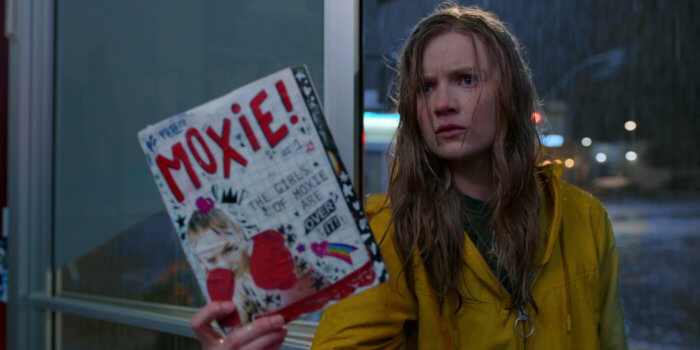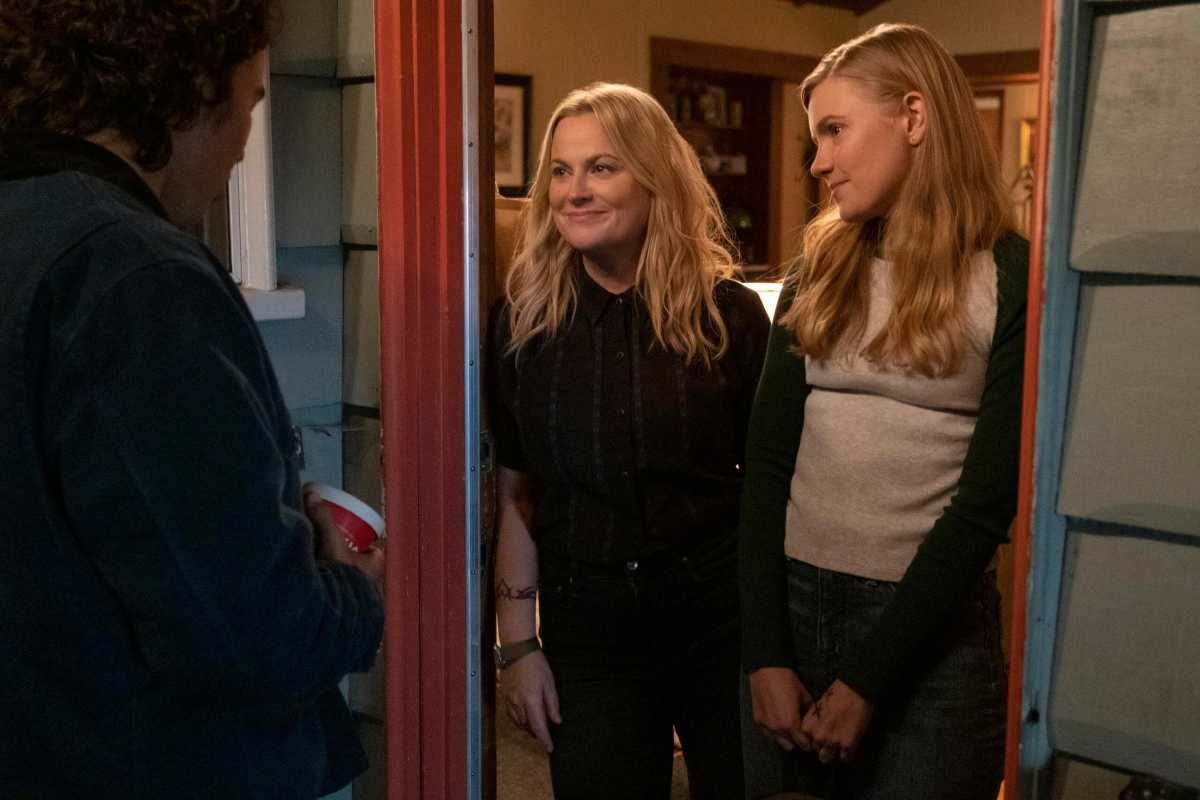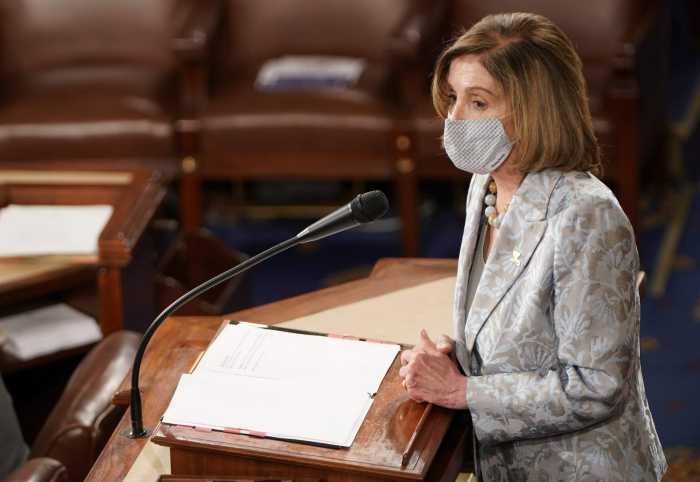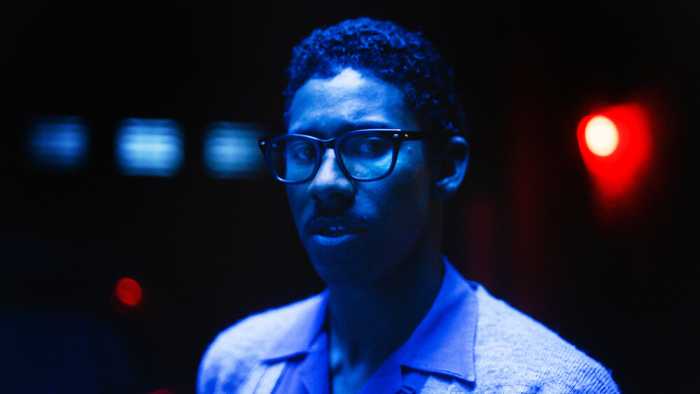The feminist teen comedy-drama, “Moxie,” about a group of high school girls who bond together to call out sexism and racism at their school, is likeable—almost aggressively so. The film is conscientious enough to include a multiracial cast as well as a trans character, CJ (Josie Totah) and a disabled girl, Meg (Emily Hopper). And how can it not be inspiring to have these feisty young women put “an end to the mediocre white dude’s chokehold on success” by rallying together to defeat the school’s straight, white football hero, Mitchell (Patrick Schwarzenegger)?
But the film, based on the novel by Jennifer Mathieu, and adapted by Tamara Chestna and Dylan Meyer, tries too hard to make its salient points about female empowerment. Couched in a coming-of-age framework typical of high school films and young adult novels, “Moxie” opens with Vivian (Hadley Robinson) starting her first day of 11th grade. She and her BFF Claudia (Lauren Tsai) are practically invisible, which suits the shy Vivian just fine. But when Lucy (Alycia Pascual-Peña), a new girl, opens her mouth in English class, wondering why they are reading “The Great Gatsby,” and not an immigrant story, or feminist novel, or a book by a person of color, Vivian starts to question her personal politics. For Vivian, who is stumped by the subject of her college application essay — which asks for her to explain what she cares about — this is the rude awakening she needs.
Seeking inspiration, Vivian finds some when her mom (Amy Poehler) tells her about her own radical youth days. Looking through a treasure trove of zines that her mother saved and listening to “Rebel Girl” by Bikini Kill, Vivian secretly writes her own zine, entitled, “Moxie,” and distributes it in school. Of course, it becomes a sensation, prompting all the oppressed young teens to form a club called Moxie to speak out and act up.
Poehler’s film is best as the young women (and their male allies) find strength and power in numbers. They stage a protest against the school’s dress code when one female student is sent home for wearing a revealing tank top. Moreover, they are discouraged that Principal Shelly (Marcia Gay Harden) is oblivious to the double standards for young women, and dismissive when Lucy lodges a complaint that Mitchell is harassing her or that a social media post calls her an impolite word. (A scene briefly addressing the principal’s laissez-faire attitude feels like lip service).

“Moxie” certainly tips its hat in favor of gender equality with its egregious examples of discrimination, such as CJ being prevented from auditioning for the role she wants in the school musical. Likewise, there is a life lesson about privilege when Claudia takes the fall for something Vivian did. Vivian learns that her Asian-American bestie is under considerable pressure by her sacrificing mom to do well. It is a valuable message, but it, along with other topics from body shaming to losing one’s virginity, to homosexuality—as seen in a kiss between two female students — feel shoehorned into the plot. These issues could have been explored more.
A significant portion of the film features Vivian’s relationship with Seth (Nico Hiraga), who discovers her secret and supports the zine’s mission and the female student’s efforts. “Moxie” does deliver the feels as Seth and Vivian go on a date — in a funeral home, no less — and are seen in an overhead shot sharing a coffin and listening to music together. But even as a feminist, Seth’s character comes off as too perfect to seem real.
Poehler’s film swings wildly from mood to mood, sometimes without much grace. The film’s humor tends to be broad. There is some sarcasm, but most of the comedy is groan-inducing. “Moxie” may generate a few smiles, but it is far better at generating emotion. Late in the film, a student anonymously contacts Moxie about a serious matter that has occurred, which prompts the girls and their allies to walk out in protest. It is an important subject in the #MeToo era, but it deserves more attention. Nevertheless, when various characters give big speeches at the film’s rousing, upbeat ending, it is hard not to applaud their efforts.
But “Moxie” is a bumpy ride until then. When Vivian becomes angry as situations beyond her control escalate, she fights with her mother, Seth, and Claudia in scenes that feel a bit forced. Viewers are so squarely on the side of this quiet subversive, that Vivian’s acting out comes across as petty, and she loses sympathy. Hadley Robinson, however, does make Vivian’s transformation from wallflower to grrrl power credible.
Poehler’s film tackles important points, and it may work best on younger, impressionable viewers who need to be aware of the issues in question. The film is certainly engaging, and the characters are easy to root for. But one cannot help but think “Moxie” could have had more punch.
“Moxie” | Directed by Amy Poehler | Now streaming on Netflix.
To sign up for the Gay City News email newsletter, visit gaycitynews.com/newsletter.






































